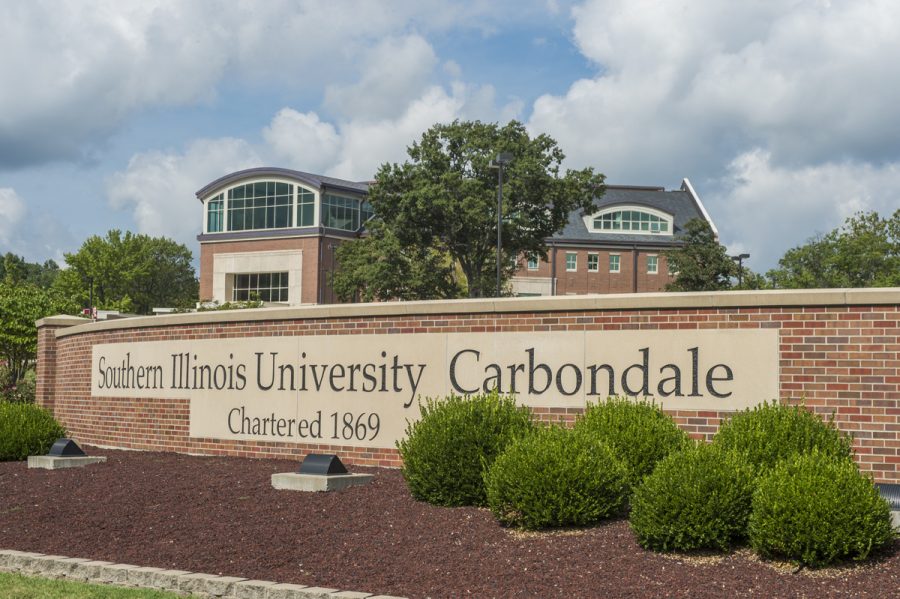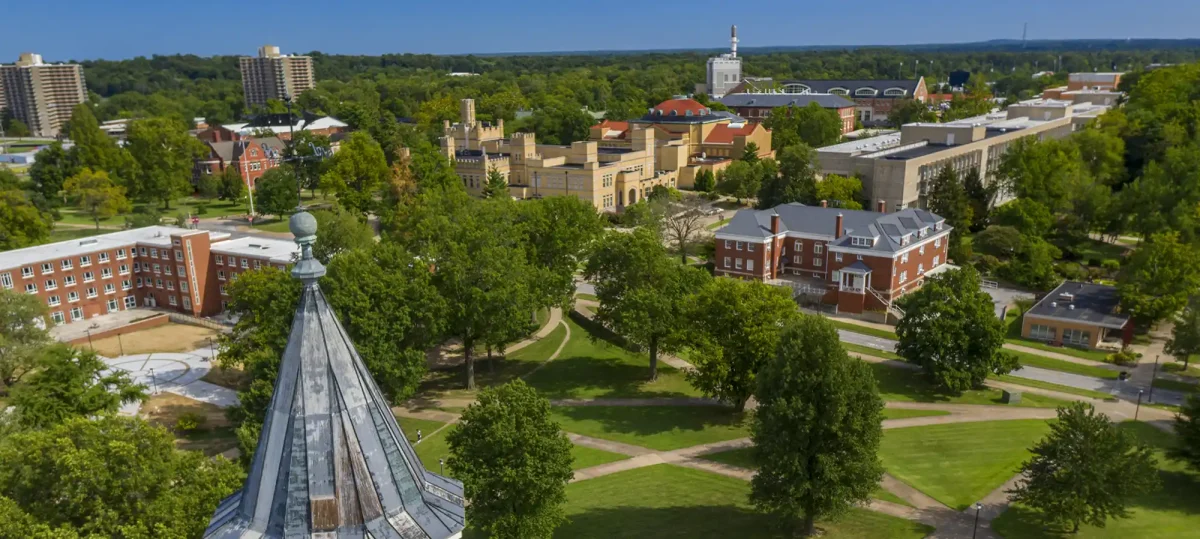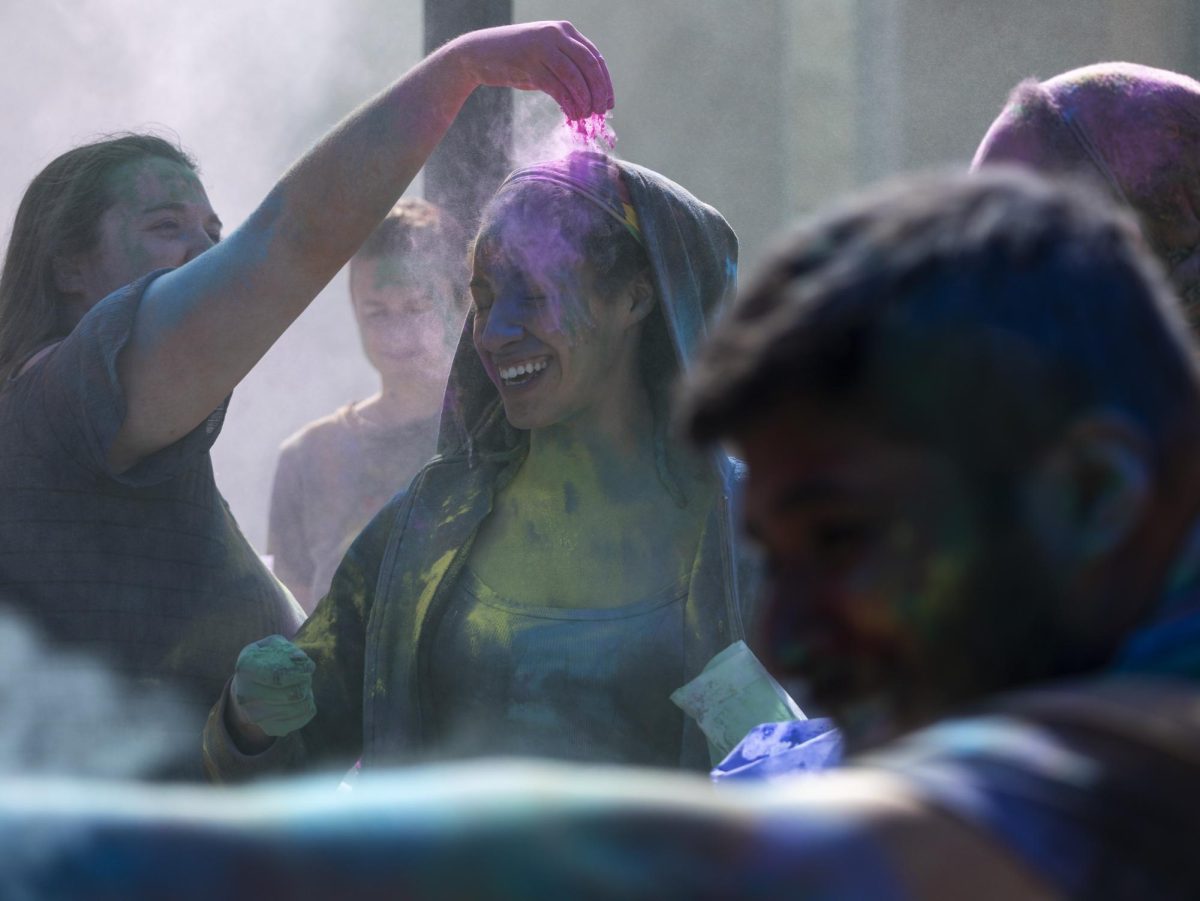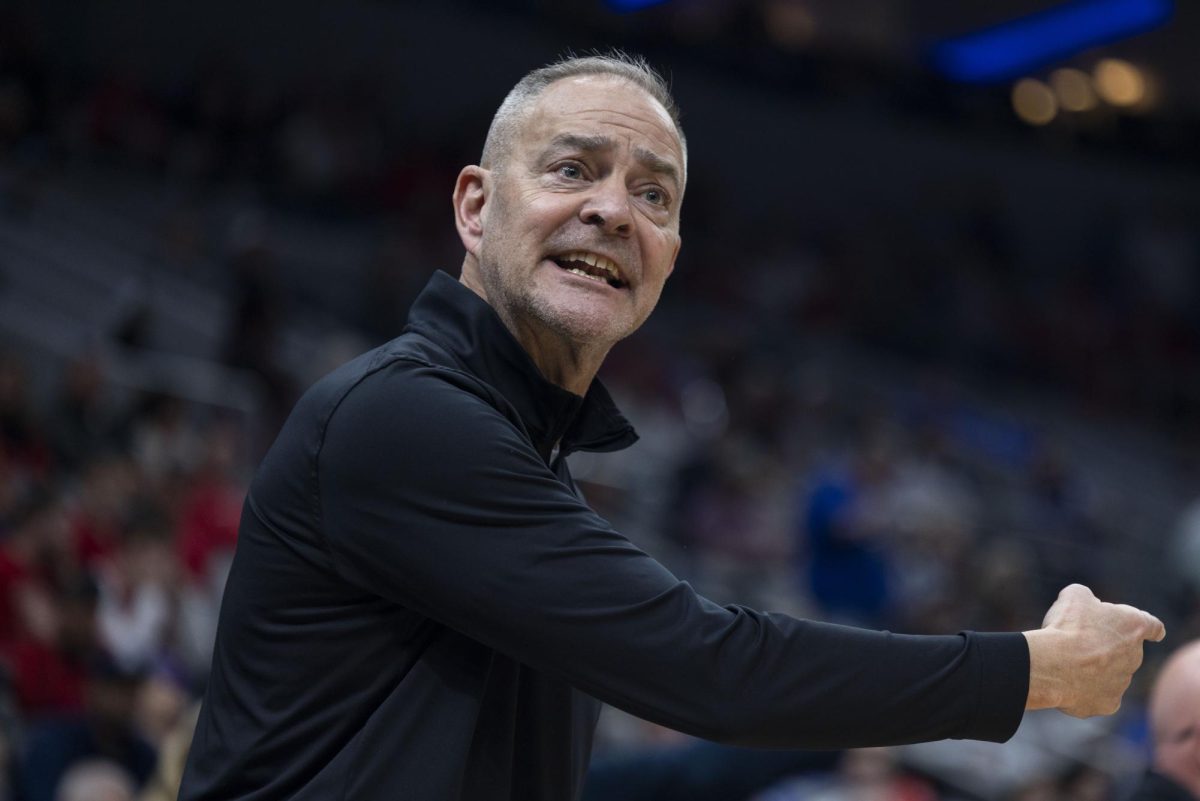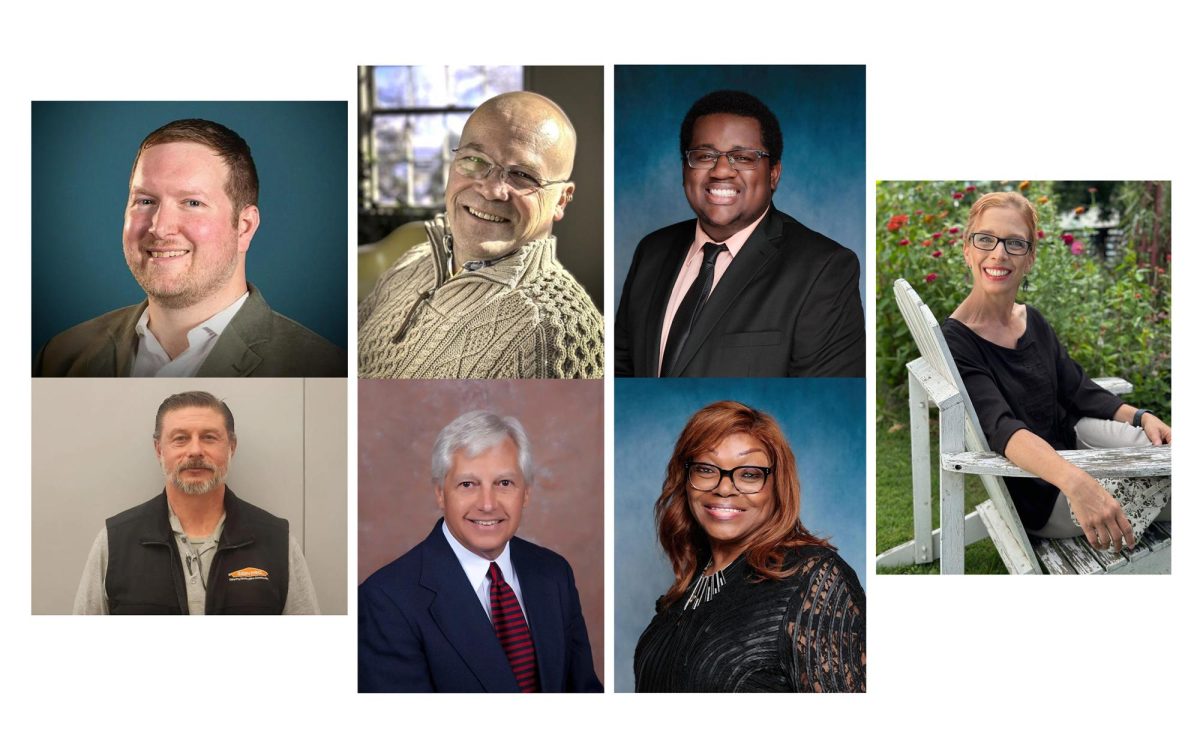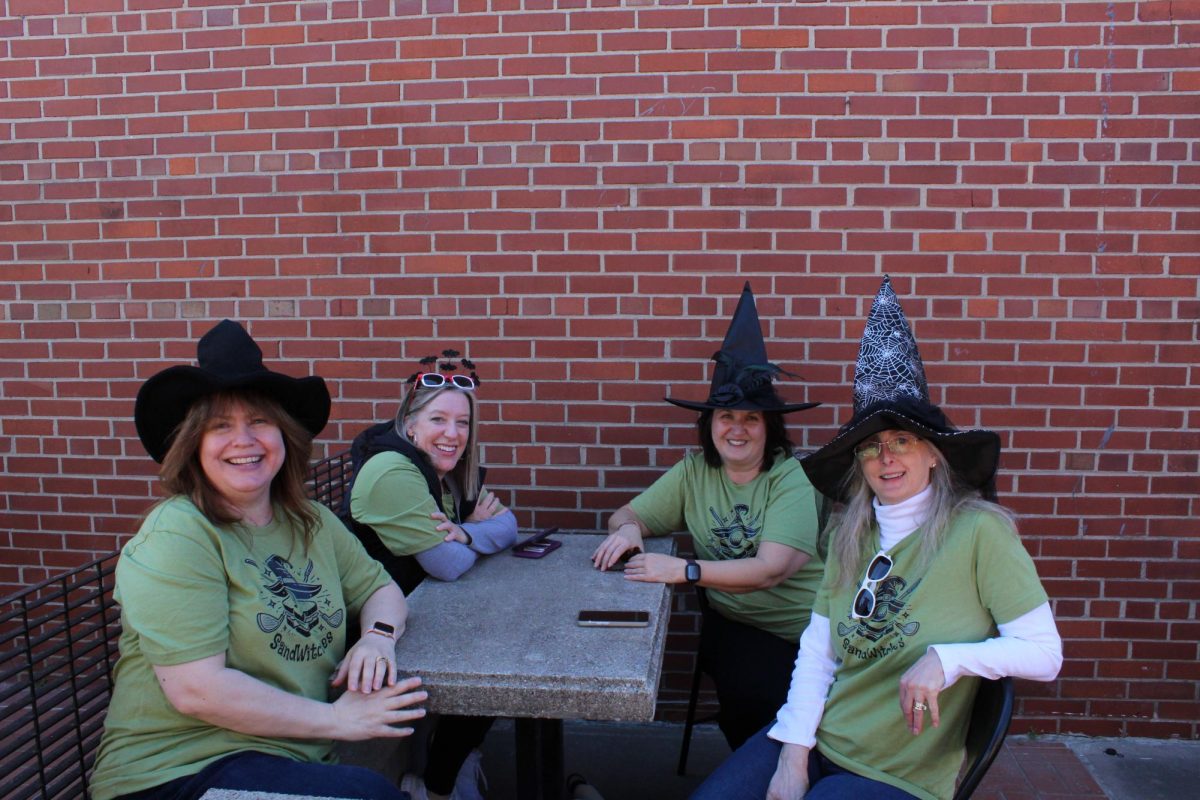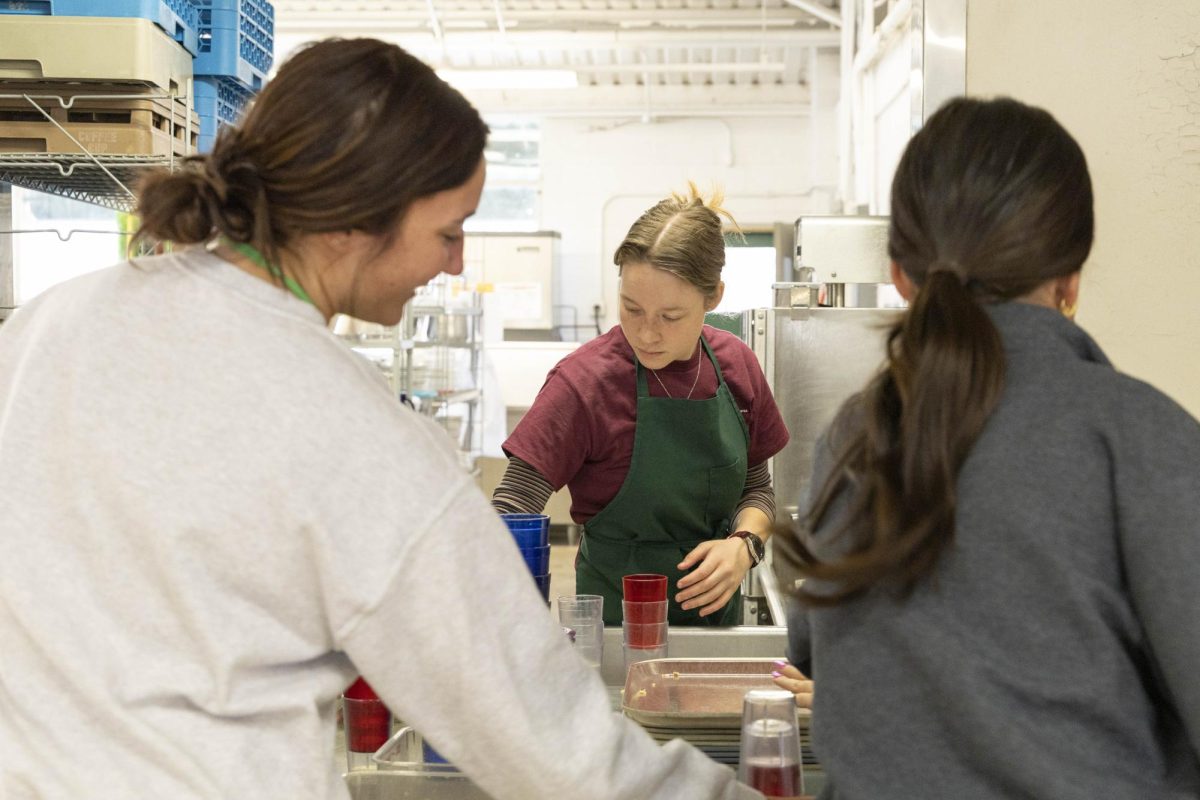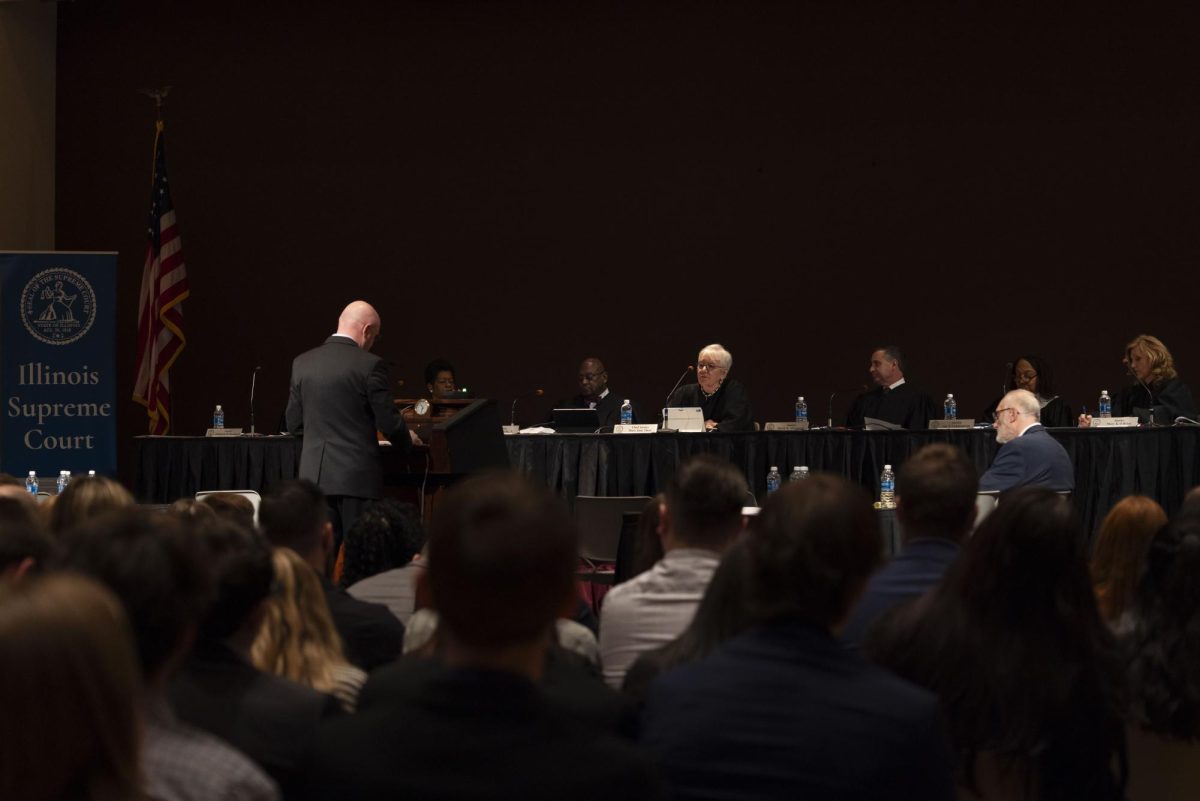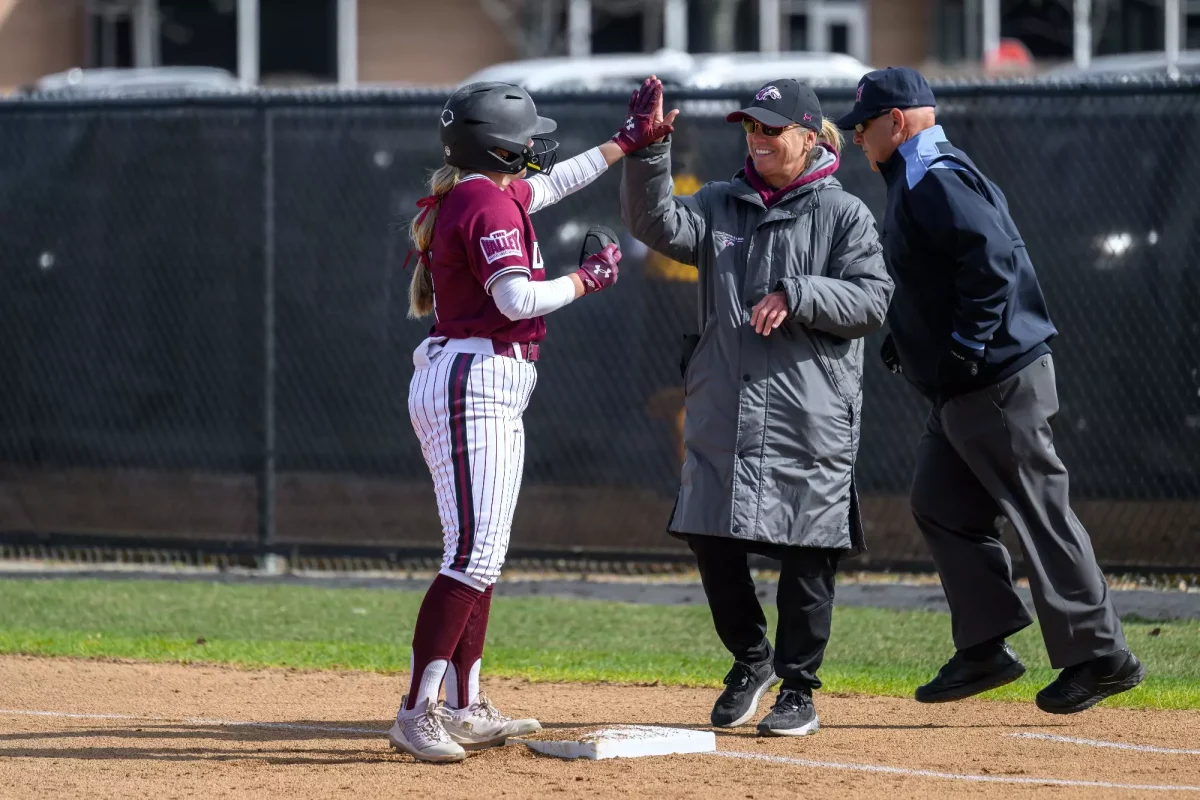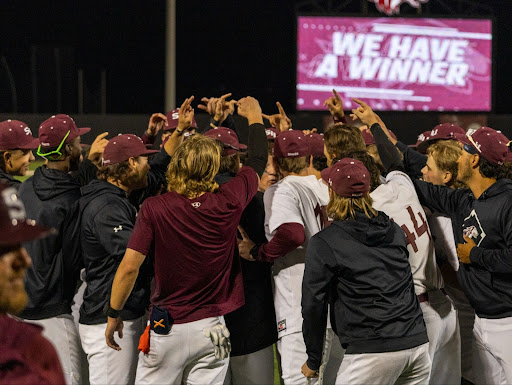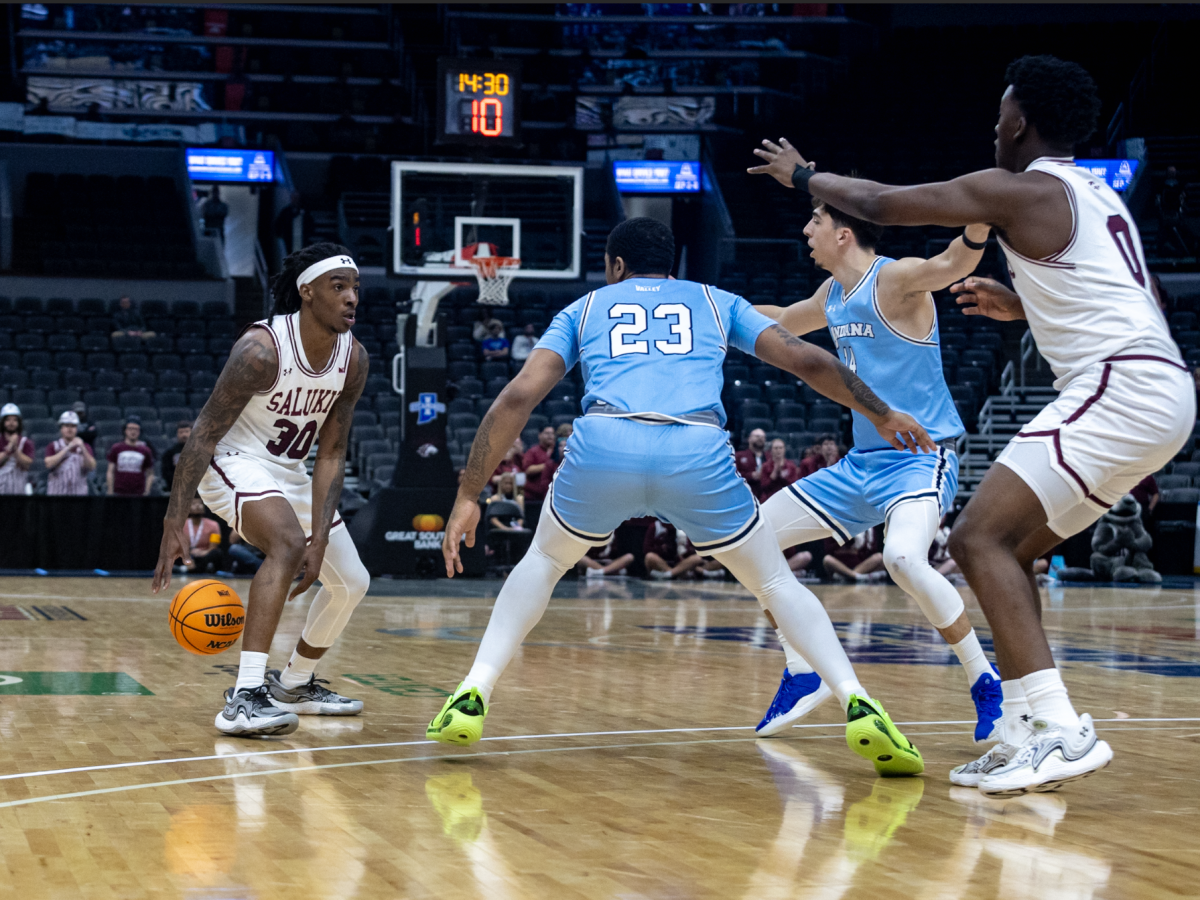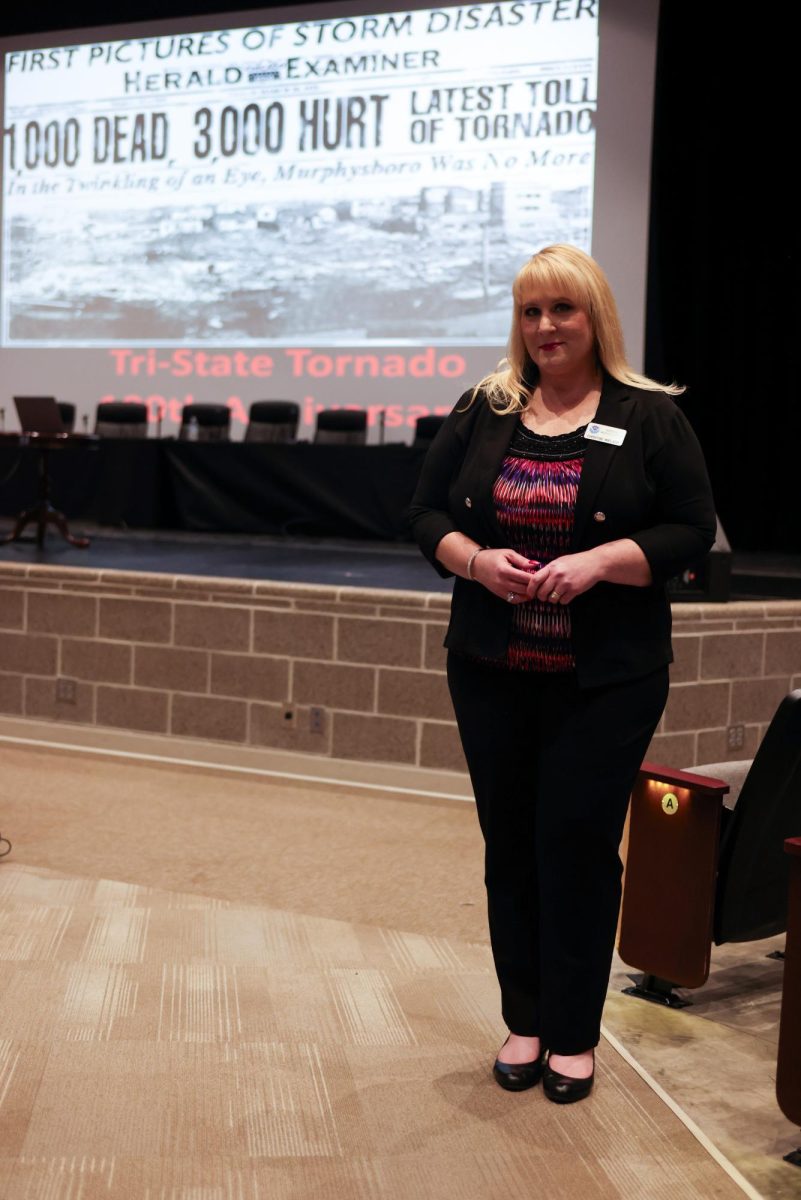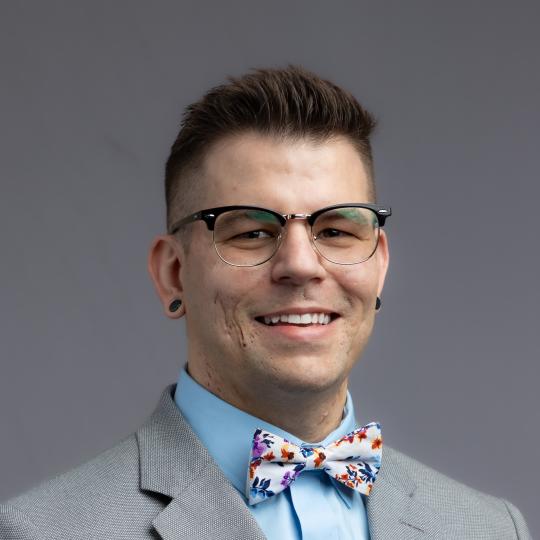Lt. Col. Chay M. Derbigny will soon take over as commander and professor of aerospace studies for Air Force ROTC Detachment 205 at Southern Illinois University.
“When I saw I got the opportunity to become an ROTC commander, and then I saw the list [of locations] that came out, obviously, that jumped off the screen for me,” he said.
Derbigny calls in from the parking lot of a southern Illinois Lowe’s. He fits our conversation into a morning of errands, which is only a glimpse of how busy his schedule is about to become. In addition to SIU, he will be leading cadets at Southeast Missouri State University and John A. Logan College.
Advertisement
“It is tough because it’s an hour drive down there at SEMO, but we got a staff of five…We do calendar meetings once a week, and we make sure that everything’s covered,” he said. “We’re going down there to give presents and make sure that they’re getting taken care of.”
He said cadets from other schools often have to come to SIU for a program called “Lead Lab.”
“[It] is a Cadet-led program where they go through different activities to help build leadership and resilience…where [they] got to go solve problems; compete on the fields of friendly strife, to kind of build grit and resiliency and learn how to work better as a team,” he said.
Derbigny was born in Murphysboro, IL and grew up in the suburbs of Chicago. His mother graduated from SIU in 1984, and he said there was a time when he considered coming to SIU.
“I wasn’t accepted to go to the Air Force Academy right away. I went to prep school,” he said. “I was rejected from the academy…So I was gonna come to Southern Illinois University…So when I saw this [opportunity], I was like, first I get back closer to the Chicagoland area where my family still lives; I get to go live in a chapter of my life that I don’t remember but my mom remembers vividly, and I can make a whole adult chapter of my life with my family in a spot that I almost went to.”
He said he thought it was “like a calling.”
“It’s a sign from Heaven saying, ‘This is it. This is what I wanted you to do. Your whole career was lined up to go and do this,’ you know? And, yeah, I couldn’t be more happy to be here,” he said.
Advertisement*
He was eventually commissioned through the U.S. Air Force Academy in 2008.
Near the start of his career, Derbigny spent time in Air Force Special Operations Command. He had five deployments (three in Afghanistan and two in Africa) over a span of three and a half years as well. He was stationed in Florida, where he met and married his wife, for about five years during this time. Shortly after, he received his first teaching opportunity.
“I got to go back to my alma mater and work with cadets,” he said. “I forgot how impressionable I was [back then], how young and mature, and you don’t know anything about anything…So I go back there and teach cadets how to fly.”
He said the opportunity allowed him to do more than just teach. He was able to become “like a life coach” to the students.
“You give them advice, you say things like, ‘Hey, these are things I wish I would have known, or I would have put more time in as a cadet…’ Few things in life, to me, are more rewarding than helping people realize their full potential, and I got to do that every day with every new cadet that came in. [There were] over 2000 cadets I got to see and work and mentor. It was an incredible experience.”
He said he returned to special operations in Florida for a few years after teaching. Then, he was picked up for Intermediate Developmental Education, where he got a second masters degree and a fellowship teaching at the academy.
Most recently, he was director of Maxwell Beyond Horizon 2024 Air Show, where he worked with over 400 people and a budget of 1.3 million. Despite not being a commander for the show, he said the experience, as well as his boss, helped prepare him for his role at SIU.
“My boss was the colonel of the air base Wing Commander there, Col. Richardson, but he was so empowering that I gave him briefs and I kept him informed, and he just kept giving me his intent,” he said. “I was able to roll with it so I acted like I was commander there.”
He said he “couldn’t imagine a better experience” to set him up for a command, especially in ROTC.
“I got [to] work with cadets, and now know how to manage a budget…people and relationships, and how to get clear intent,” he said. “After witnessing that with my boss Col. Richardson, I think it prepared me extremely well. It gave me experience that I think should help cadets as well.”
There are several other role models he credits for helping shape his career–Coach Hall (his high school baseball coach), Coach G (his fifth grade teacher that he still writes letters to) and Coach Mike Kazlausky (his assistant baseball coach, and now head coach, at the Air Force Academy).
“I didn’t really have a father figure growing up…So I really leaned on my friend’s parents and my coaches and my teachers to get to where I’m at today,” he said.
He said he likes “paying it forward.”
“I hope to help inform the cadets to make good decisions and work hard and build up their grit so they can be successful U.S. citizens wearing the uniform,” he said.
Derbigny was named commander at a change of command ceremony on June 28. He said that becoming a commander is a goal for many members of the air force, so the tradition can be “a culminating moment for a lot of people’s careers.”
“It’s a career of working hard and being recognized for that hard work and being trusted to take a command position,” he said. “And so it’s very rewarding and humbling in a lot of ways.”
Derbigny is taking over for Lt. Col. Jessica H. Dwyer, who has recently started serving as Deputy Division Chief for Acquisitions Workforce Development at the Pentagon.
“I help to oversee the professional development of our scientists, engineers and program managers in the Air Force, so whether that’s making sure that they have the right education, the right training, the right experiences at the right time, so that they are ready to take on more responsibilities as they progress through their career,” she said.
Dwyer said Derbigny is “the full package.”
“[He’s] an accomplished aviator, an experienced scholar and professor already, and so those are the exact things that we’re looking to bring into an ROTC detachment, because he’s going to be the role model and modeling what leaders should be like on active duty,” she said.
Dwyer said that to become an ROTC commander, applicants must state their interest and provide an application package with fitness records, educational and leadership experiences, a cover letter and letters of recommendation. From there, a short list of applicants will become candidates, although not all will get matched with an ROTC detachment.
Dwyer said she knew Derbigny would be a “perfect fit” while he was “still in the application phase.” She also noted that being from Illinois will help him understand “the demographic of students he will be working with.”
“That is kind of nice when you can bring someone who is familiar with the area, because he may even have existing connections that can help with the program’s development and success as well,” she said.
Derbigny said that Dwyer inherited the program when it was “not in a healthy spot.” It was 2021, fresh out of the Covid-19 pandemic.
“She really flipped this program around to get it healthy and make sure we graduate quality, not quantity,” he said.
Dwyer said she had four main priorities, one being more community engagements from the program.
“First was the health and safety of our cadets, cadre…and the community,” she said. “And obviously developing our leaders of character for the Air Force and Space Force, embodying a culture of dignity and respect. And then the last one…was strengthening our relationships with the community and fostering trust amongst the public.”
She added, “I feel like I had had friends and family who were questioning our military strength compared to our other nations, and I just felt like part of my job was to reassure the public that they’re in good hands and that we are developing the future leaders who will know you know how to handle adversity when they’re faced with it.”
Derbigny said he wants to keep building on what Dwyer has accomplished.
“I hope my successor does the same thing, and it just keeps growing into an awesome debt that everybody’s proud of and people want to go to,” he said. “I think SIU would love that too.”
Derbigny’s vision for the program currently has two main focuses.
“It’s [SIU] not a big tech school, and that’s what the Air Force wants,” he said. “We want more people to take the technical degrees…graduate with that to try to [inspire more cadets] to do more of a tech degree that will help them get the job that they want in the Air Force, whether that’s flying or engineering or something else, that gets you a good technical skill. So that’s a goal, to try to figure out how to do that and build up our tech degrees.”
He also wants to recruit prospective cadets from other departments, namely athletics.
“In athletics, [if] you think about it, you’re competing against somebody who’s trying to beat you,” he said. “You got a lot of grit. It’s built-in resiliency…You fail all the time…So you learn to overcome resiliency with different sports…You work [on] teamwork, which [are] all huge things that help our officers perform at a higher level. So I’m hoping to try to recruit into that a little bit and see if I can convince some of the athletes to join ROTC.”
Dwyer mentioned the aviation program.
“With our high density of aviation majors, not only at SIU, but in our program…we exist to support and groom pilots,” she said. “I think with his background, we’ll be able to strengthen that relationship as well, which can help with retention, so maybe bring in some more cadets.”
Dwyer wants to leave Derbigny with this advice: “Don’t be afraid to fail. See your vision through.”
Derbigny said that serving one’s nation is a “unique calling” and features lots of “camaraderie.”
“It’s a humbling experience and there’s no greater calling, I think, than to go serve other people [in] the military or [as a] policeman or teacher or whatever; anything that goes to serve your country or serves your community to help it be a safer, more enjoyable, awesome place,” he said. “That’s what you get at ROTC.”
Advertisement






